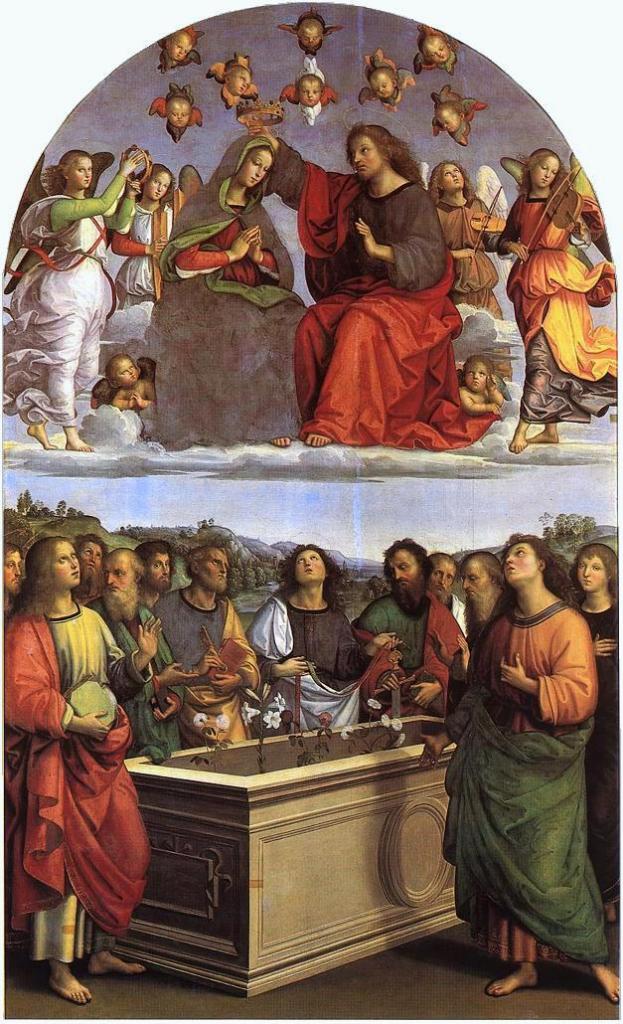Is 1 Kings 2:17-25 a Fatal Counter-Example? (with Steve Ray)

I received the following letter:
We are Anglican, and looking very deeply into the Catholic church. There is one matter that troubles me which I hope you will be able to clarify for me.
I ordered Knowing Mary Through the Bible, a DVD series by Ted Sri, and have been watching it. At one point, Dr. Sri makes the point that Jesus will not refuse Mary’s requests, and the text he uses to support this is 1 Kings 2: 17-20, in which Bathsheba makes a request of Solomon. Dr. Sri ends his reading of the passage with Solomon saying to his mother, the Queen, “I will not refuse you.”
But that’s not what Solomon does: in fact, he does refuse her the request; not only does he not give Adonijah the wife he desires, as Bathsheba has asked, but Solomon has Adonijah put to death! If you are going to use this text with regard to Jesus and Mary, you would conclude that He most certainly can refuse her requests, not that He always fulfills them.
What troubles me is that Dr. Sri (and also Scott Hahn, in Hail, Holy Queen) does not tell the whole story with this text. They leave out the conclusion of the story, namely, that the Queen Mother’s request is denied. They end with verse 20, instead of reading through to verse 25 and dealing with the fact that Solomon does not fulfill Bathsheba’s request. I sent an email to Dr. Hahn, but never received a reply. I was not sure how to contact Dr. Sri, and then I thought of you. Doesn’t their use of this text to support Mary’s influence over Christ seem rather disingenuous?
Here is my reply:
I think this is a valid objection and concern on your part. Sri and Hahn would have been wise, I think, to have dealt with this additional factor. I took a look at the relevant passage in Scott Hahn’s book via the Amazon Online Reader. I don’t know why they did not, though I am very slow to accuse anyone of being disingenuous.
My friend, Catholic apologist Steve Ray wrote a 30-page treatise on the Queen Mother and he did deal with this aspect of the story. Here’s what he wrote. It is sufficient to answer the objection, I think:
The Objection:
“One did, and it was unusual, and she did not obtain from her son what she wished.”
My Response:
. . . If the kings of Judah had wives for queens, like other nations, then we would have no analogy, but the fact that it might be so unusual, makes it all the more stunning. That the kings in the ancestral line of Jesus had mothers for queens is all the more appropriate that Jesus continue this “unusual practice” and make his mother the queen according to the same pattern of his predecessors.
One cannot deny that Solomon, the Son of David who sat on the throne of his father David — Solomon did have his mother for a queen. And he did set up the throne for her at his right hand. If it is unusual, it only makes my case all the stronger.
One cannot deny that Jesus sits on the throne of his father Solomon. Jesus is the ultimate Son of David who sits on the throne of David (and Solomon) and it would not be unbiblical or irrational or astounding to think that Jesus would do for his mother what Solomon did for his. . . .
. . . He says “she did not obtain from her son what she wished” as if that proved there could not be a Queen Mother. I remember my dad telling me that Mary could not be the queen of heaven — using the same argument — because Bathsheba did not get the request she asked for. I guess my question to that is “So what, what does that prove?”
Solomon was a type of Christ even though he was a sinner. Bathsheba was also a sinner. She asked for something unwise and Solomon refused. Just because Bathsheba asked for something unwise and it was not granted to her by her son Solomon, it does not mean she didn’t have the office of Queen Mother. It simply means she was unwise and didn’t receive her request.
Mary is not unwise and would not ask for something inappropriate. But even if she did (for the sake of argument), it would not invalidate the position of Queen Mother, or prove that she was not in heaven as the queen.
But didn’t Solomon reject his mother’s request? Yes, he did. But that in no way detracts from the fact that this office existed anymore than the presence of false prophets proves that prophets did not exist. It should be noted that all three parties, Adonijah (v. 17), Bathsheba (v. 18), and Solomon (v. 20), believed that because Bathsheba was the Queen Mother that she could intercede on others’ behalf with the reasonable expectation of a favorable answer. No one’s sensibilities are shocked by Bathsheba’s actions. The negative answer does not invalidate the fact that Bathsheba could ask and that there was an expectation that whatever was asked would receive a favorable hearing.
. . . For example, one may say that the Queen Mothers were terrible sinners and therefore how could Mary be seen as a Queen Mother? This is a terrible argument.
First, whether or not office holders are sinners is irrelevant to whether an office exists. Indeed, an evil office holder may lower the prestige of an office, but it doesn’t invalid[ate] it any more than a bad president proves that the office of president doesn’t exist. We’ve seen that in our lifetime, unfortunately.
Second, the objector assumes that this argument is typological, which it is not. It is analogical. But even if it were a typological argument (which it is not), Mary would be the antitype to Bathsheba by opposition, which is one of the most common anti-typical fulfillments in the Bible. But since this is a[n] argument from the analogy of the institution, it doesn’t matter who the particular office-holder was as long as it was the king’s mother.
God, in his providential care, guided the Old Covenant people to develop certain institutions so that when Christ came, we would, by analogy, have something to help understand Him and his Mission, his office and his Church. For example, the Old Covenant has the institution of the priesthood so that we may understand, by analogy, Christ’s priesthood and how it relates to us and our redemption. Despite the fact that there were false prophets, sinful priests and evil kings in the Old Testament the institutions themselves aid us in understanding Christ, His relationship to God, and his relationship to everyone else since he is the true prophet, priest and king.
In a nutshell, Steve is arguing for the office of the Queen Mother, which is firmly established in Scripture, as analogous to Mary as Queen of Heaven. It’s an analogy, but (like many are) an imperfect one, because Bathsheba (being a sinner like the rest of us, and once an adulteress) would not always ask for the right thing, whereas Mary (being sinless and perfected in heaven and rather unique and exalted among creatures) would. The analogy is to the office, not every single jot and tittle.
It’s like arguing for the office of the papacy by the original example of Peter, and the prototype that he provided in the Bible. The office of the papacy is not at all — not in the slightest — undermined because Peter betrayed Jesus, or because he was once rebuked by Jesus, saying “get behind me Satan,” or because Paul rebuked him for hypocrisy. Nor does this undermine papal infallibility, which is a limited charism, and not directly connected with whether the particular pope involved is a sinner or not.
Likewise, biblical inspiration is not undermined because God used sinners to write His inspired Bible (murderers like Moses, David, and Paul, and betrayers and wimps like Peter; former despised tax collectors like Matthew). The “office” of Scripture writer, in other words, was not rendered null and void because sinners occupied it.
Another similar imperfect analogy would be King David (the adulterer and murderer) as a type, shadow, or forerunner of the Messiah, Jesus. This is a clear Scriptural motif in the prophets (Is 9:6-7; Jer 23:5-6; 30:9; Ezek 34:23-24; 37:24-25; Zech 12:8; cf. Luke 1:31-33,68-69). I thought of this just now, but Steve also alluded to it on p. 24:
The New Testament applies the institution of Davidic Kingship to Jesus. He is the true Son of David and one who is greater than Solomon. As I mentioned in point one, by this institution we can better understand Jesus, His mission and His relationship to others. Therefore, the Jewish understanding of the King, with his courts, officers and mission provides us with a biblical insight into how Jesus is as Messiah-King and what he might do as the Messiah-King.
I trust that this answers your objection. I think an open airing of such things is important and worthwhile for apologetic / educational purposes, so that a lot more people can see how the objection can be answered from the Catholic perspective (whether sufficiently or not is for the reader to judge).
***
(originally 9-5-08)
Photo credit: Coronation of the Virgin (1504), by Raphael (1483-1520) [public domain / Wikimedia Commons]
***













